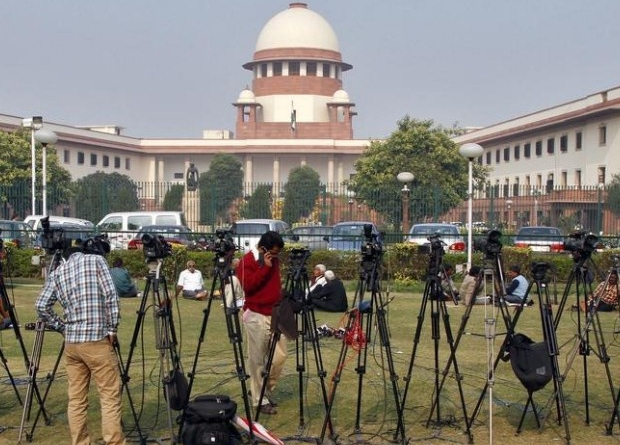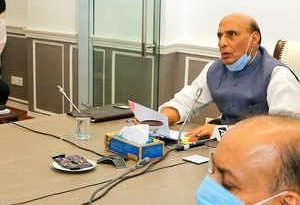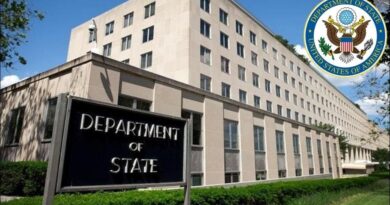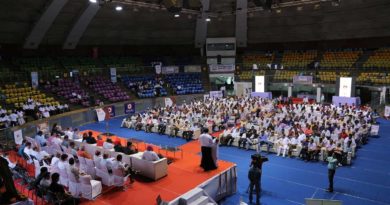SC Junks Plea For Probe Justice Loya’s Death saying It was A Malicious Campaign To Tarnish The Judiciary
THE Supreme Court of India has categorically ruled out further probe into the demise of CBI judge B H Loya who breathed his last on December 1, 2014 at Nagpur in Maharashtra. A three –Judge Bench headed by Chief Justice Dipak Misra ruled it was a natural death warning the petitioners for making an effort to scandalise the judiciary through such frivolous cases. The Judge had come to Nagpur with his family to attend the wedding ceremony of the daughter of one of his colleagues during the break of hearing a case relate to killing of Sohrabuddin in an encounter. BJP President was among the accused. The Bench trashed every charge made in the petitions filed by Congress spokesperson Tehseen Poonawala, lawyer associations, a journalist, and individual citizens stopping short of initiating criminal contempt against the lawyers who represented them despite holding that the petitions scandalised the judiciary by levelling false charges. The Bench while dismissing the petitions sought to expose the machinations of the petitioners as a “veiled attempt” to weaken the independence and credibility of judicial institutions and warned that political and business rivalries must be fought outside the court and PILs should not become instruments to settle personal scores. The Bench held that documentary material and statement of witnesses were “clear and consistent” that the death of judge Loya was due to natural causes and merits no further enquiry. The judge’s death made national news as the Sohrabuddin encounter case which he was hearing had BJP president Amit Shah as one of the accused. The controversy surrounding his death surfaced in November 2017 when news magazine Caravan published two articles raising doubts on the theory that Loya died a natural death. On complaint of chest pain, four district judges accompanying him took him to a local hospital. From there, he was referred to a cardiac specialty hospital where he breathed his last. The petitions did not believe that Loya died of heart attack. They alleged murder and sought to project the four judges as “co-conspirators”. The SC conducted extensive hearing of the case. A discreet enquiry conducted by the Maharashtra Government concluded that his death was due to natural cause. As part of the enquiry, statements of four judges were taken and all medical records examined. All this was submitted before the court. Justice Chandrachud, writing the judgment for the Bench, said, “We must lean in favour of the version of the four judicial officers unless strong and indisputable circumstances are shown to doubt their credibility. This would be in the larger public interest to uphold the independence and integrity of the institution.”The petitioners led by advocate Prashant Bhushan, senior advocates Indira Jaising, Dushyant Dave among other senior counsels, who were supplied all records, tried to cast unfounded aspersions on the judicial officers by claiming that they delayed taking him to hospital, did not take ECG, refused to inform judge Loya’s family, failed to visit the deceased judge’s home after the incident. Rubbishing all these claims based on the facts emanating from the record, the Bench said, “By casting unfounded aspersions on the judicial officers, the petitioners have revealed the real motive of these proceedings which is to bring the judiciary into disrepute on the basis of scurrilous charges.” The court wondered how the senior lawyers made such callous and unverified allegations and felt it necessary to protect judges of the district judiciary and stood by their statements realising how vulnerable they are to “wanton attacks” on their independence. Judicial orders passed by Bombay High Court judges who were part of the probe were also drawn in to make insinuations against them. One such order was a relief granted by one of the HC judges to Chief Minister Devendra Fadnavis in a private property dispute of 1991. The Bench saw a larger design behind the PILs to settle political or business rivalry that not only consume precious judicial time but reduces judicial process to a charade obstructing course of justice. Preventing courts from becoming agencies to settle extra-judicial scores, Justice Chandrachud wrote, “Business rivalries have to be resolved in a competitive market for goods and services. Political rivalries have to be resolved in the great hall of democracy when the electorate votes its representatives in and out of office…there is a danger that judicial process will be reduced to a charade if disputes beyond the ken of legal parameters occupy judicial space.” Although Congress was not directly involved in the case some petitioners associated with the party had appeared in the SC demanding fresh trial. Congress President Rahul Gandhi had been raising the issue publicly. Congress is not satisfied with the judgement.BJP asks Rahul Gandhi for maligning judiciary.(for image courtesy to The Business Standard).




